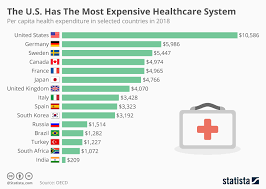
Compared to people in other high-income countries, Americans of all incomes have the hardest time affording the health care they need.
The U.S. health system ranks last among 11 high-income countries in providing equitably accessible, affordable, high-quality health care, a new Commonwealth Fund study found. Norway, the Netherlands and Australia were the top overall performers.
“What this report tells us is that our health care system is not working for Americans, particularly those with lower incomes, who are at a severe disadvantage compared to citizens of other countries,” said Dr. David Blumenthal, president of the Commonwealth Fund. “And they are paying the price with their health and their lives. To catch up with other high-income countries, the administration and Congress would have to expand access to health care, equitably, to all Americans, act aggressively to control costs and invest in the social services we know can lead to a healthier population.”
The report shows that getting good, essential health care in the United States depends on income, more so than in any other wealthy country. Since 2004, the United States has ranked last in every edition of the report, falling further behind on some indicators, despite spending the most on health care. Among the 11 nations surveyed, the United States is the only one without universal health insurance coverage.
Among the other findings:
- Access: Compared to people in other high-income countries, Americans of all incomes have the hardest time affording the health care they need.
- Process: The United States ranks second for care process, which combines four categories of indicators: preventive care, safe care, coordinated care and patient engagement and preferences.
- Outcomes: The United States ranks at the bottom for health care outcomes. Compared to other countries, it performs poorly on maternal mortality, infant mortality, life expectancy at age 60 and deaths that were potentially preventable with timely access to effective health care.
- Efficiency: The United States also ranks last in administrative efficiency because of how much time providers and patients spend dealing with paperwork, duplicative medical testing and insurance disputes.
The study made several recommendations for expanding better and more equitable health outcomes:
- Expand coverage. The highest-performing countries have universal coverage and consumer protections so people can get the health care they need at little or no cost.
- Strengthen primary care. Affordable, timely and convenient primary care, available on nights and weekends in all communities, keeps people healthier and lowers costs in the long run.
- Reduce administrative burden. Reducing the paperwork and administrative complexity in the U.S. health care system would give countless hours back to patients, caregivers and physicians while making the system easier for people to navigate.
- Invest more in social services. Factors beyond traditional health care, such as housing, education, nutrition and transportation, have a substantial effect on people’s health. Investing in services that provide support in these areas can improve population health and reduce health care costs.
“This study makes clear that higher U.S. spending on health care is not producing better health, especially as the United States continues on a path of deepening inequality,” said Dr. Eric Schneider, Commonwealth Fund senior vice president for policy and research. “A country that spends as much as we do should have the best health system in the world. We should adapt what works in other high-income countries to build a better health care system that provides affordable, high-quality health care for everyone.”